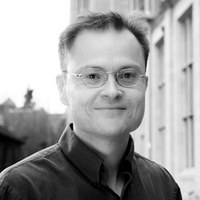Workshop: Words in Action? Exploring Local Perceptions of Persuasion and Propaganda as Verbal Performances in Africa
 This workshop is organized by the ASCL's Collaborative Research Group Collaboration and Contestation in Words: Dialogues in African Social Realities. There will be two plenary lectures.
This workshop is organized by the ASCL's Collaborative Research Group Collaboration and Contestation in Words: Dialogues in African Social Realities. There will be two plenary lectures.
Lecture by Harri Englund: Free Speech and the Untranslatable: Homophobic Poetry from Malawi
Public debate and contestation bring to the fore not only the question of free speech, but also matters of translation, not least in Africa’s multilingual polities. Translation across languages would seem to serve the freedom of expression, but it may also suggest that barriers to understanding are linguistic rather than political and historical in nature. Untranslatability, particularly its political and moral sources, can disappear from view. Attempts to translate Malawian homophobic poetry from Chichewa to English show how the linguistic is entwined with the political. Despite writing in Chichewa in a country where English is the official language, the poets address Westerners in their scathing attacks on homosexuals. Rather than focusing on alleged Biblical truths, as pastors might do, the poets criticize homosexuality as a neo-colonial ploy to make freedom and democracy mere smokescreens in Westerners’ quest for a continuing rule over Malawi. Despite the address, the poems are hardly meant to be translated. What moral and political controversies, as well as linguistic challenges, does a foreign anthropologist face when he embarks on translating such poetry? What, if any, sense of free speech is advanced by such a project? Taking my cue from Emily Apter’s critique of Comparative Literature’s assumptions of “cultural equivalence and substitutability” in “the tendency to zoom over the speed bumps of untranslatability in the rush to cover ground,” I argue for translation and untranslatability as central issues in the ethnographies of free speech and public debate.
Lecture by Adriaan van Klinken: “Homophobia is un-African and un-Christian”: Emerging Kenyan, Christian and Queer Counter-Narratives and Arts of Resistance
Popular rhetoric of politicians, religious leaders and other opinion leaders in many African countries has it that homosexuality is “un-African” and “un-Christian”. In the same countries, however, emerging lesbian, gay and bisexual (LGB) communities, movements and activists are becoming more and more visible, claiming public space, and contesting this popular rhetoric by developing counter-narratives. In this lecture, I explore this dynamic with reference to Kenya, specifically examining a number of creative expressions through which Kenyan LGB actors have recently performed “queer arts of resistance”. In conversation with James Scott’s classic study Domination and the Arts of Resistance (1990), I foreground the public transcripts of contemporary Kenyan queer visibility and I distinguish three different modes of resistance – critique, appropriation, and transformation – through which Kenyan LGB actors engage the claims that queer sexuality would be “un-Kenyan”/”un-African” and “un-Christian”. Drawing on my case studies, I argue that the various forms of Kenyan queer arts of resistance represent the possibility of a black pan-African Christian form of queer imagination and politics, as an alternative to popular homophobic forms of Christianity as well as to mainstream secular forms of LGB activism in Kenya and wider in Africa.
Please register for the workshop before 20 October by sending an e-mail to: Loes Oudenhuijsen.
Speakers
Prof. Dr Harri Englund, Professor of Social Anthropology at the University of Cambridge
 Prof. Harri Englund has a broad research interest in topics such as liberalism, democracy, human rights, moral obligation, freedom and equality. Studying these topics in their vernacular forms has involved long-term ethnographic fieldwork in South-Central Africa (Malawi, Mozambique and Zambia) as well as more recently in Finland. From 2017 until 2020, a Leverhulme Major Research Fellowship enables him to pursue a project on linguistic translation as a perspective into questions of inequality and shared humanity in encounters across stark differences. His earlier projects have included work with human rights activists, refugees and Pentecostal Christians, among others.
Prof. Harri Englund has a broad research interest in topics such as liberalism, democracy, human rights, moral obligation, freedom and equality. Studying these topics in their vernacular forms has involved long-term ethnographic fieldwork in South-Central Africa (Malawi, Mozambique and Zambia) as well as more recently in Finland. From 2017 until 2020, a Leverhulme Major Research Fellowship enables him to pursue a project on linguistic translation as a perspective into questions of inequality and shared humanity in encounters across stark differences. His earlier projects have included work with human rights activists, refugees and Pentecostal Christians, among others.
 Dr Adriaan van Klinken's teaching and research focuses on religion in contemporary Africa, specifically in relation to issues of gender and sexuality, but also in relation to politics and public life more generally. He seeks to unravel and understand (sometimes rather unintelligible) religious discourses and expressions and their socio-cultural and political manifestation and significance. In recent years, his work has come to focus on issues of religion and homosexuality, with research conducted in Zambia and Kenya. He is currently finishing his second monograph, entitled Kenyan, Christian, Queer: Religion, LGBT Activism, and Arts of Resistance in Africa.
Dr Adriaan van Klinken's teaching and research focuses on religion in contemporary Africa, specifically in relation to issues of gender and sexuality, but also in relation to politics and public life more generally. He seeks to unravel and understand (sometimes rather unintelligible) religious discourses and expressions and their socio-cultural and political manifestation and significance. In recent years, his work has come to focus on issues of religion and homosexuality, with research conducted in Zambia and Kenya. He is currently finishing his second monograph, entitled Kenyan, Christian, Queer: Religion, LGBT Activism, and Arts of Resistance in Africa.

